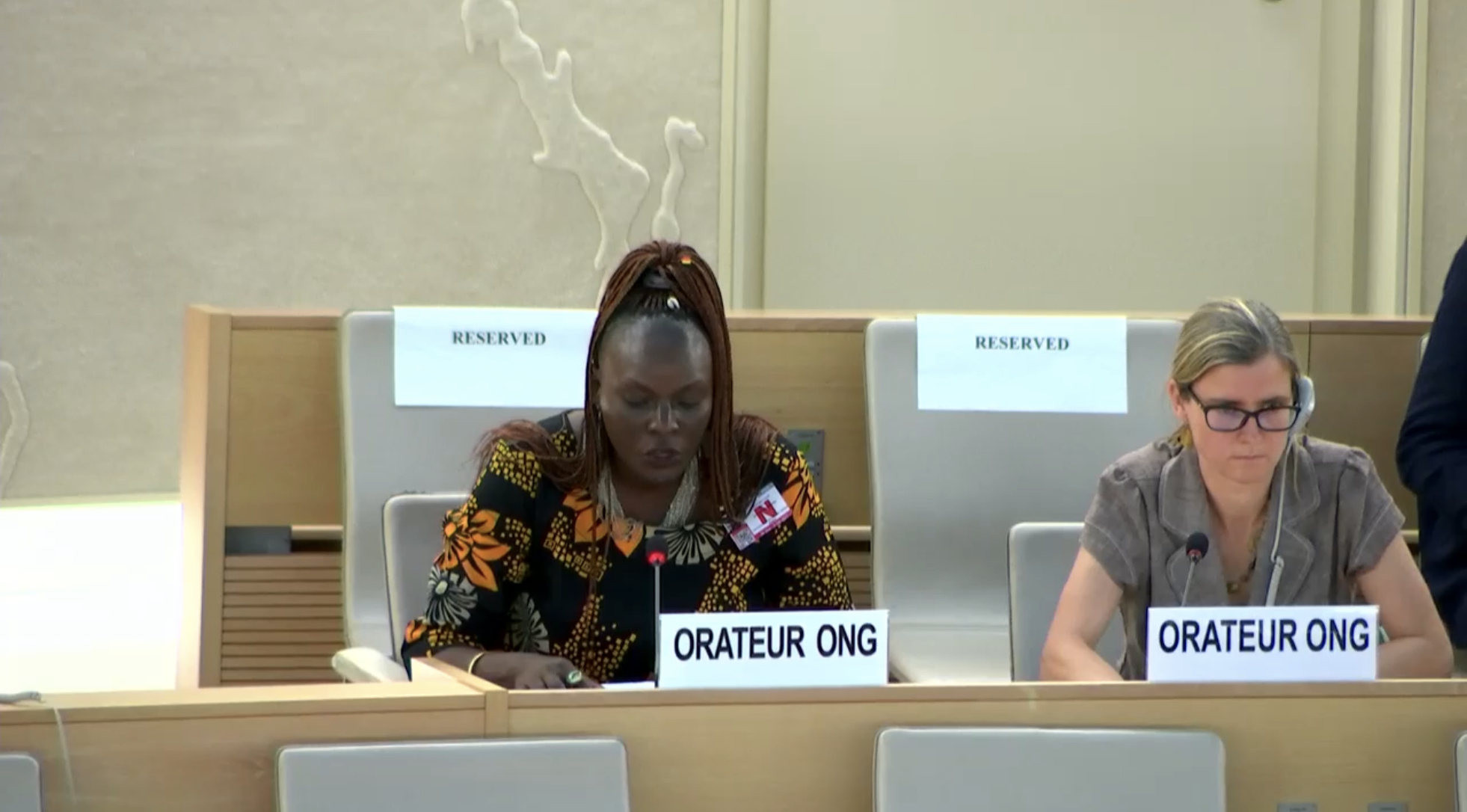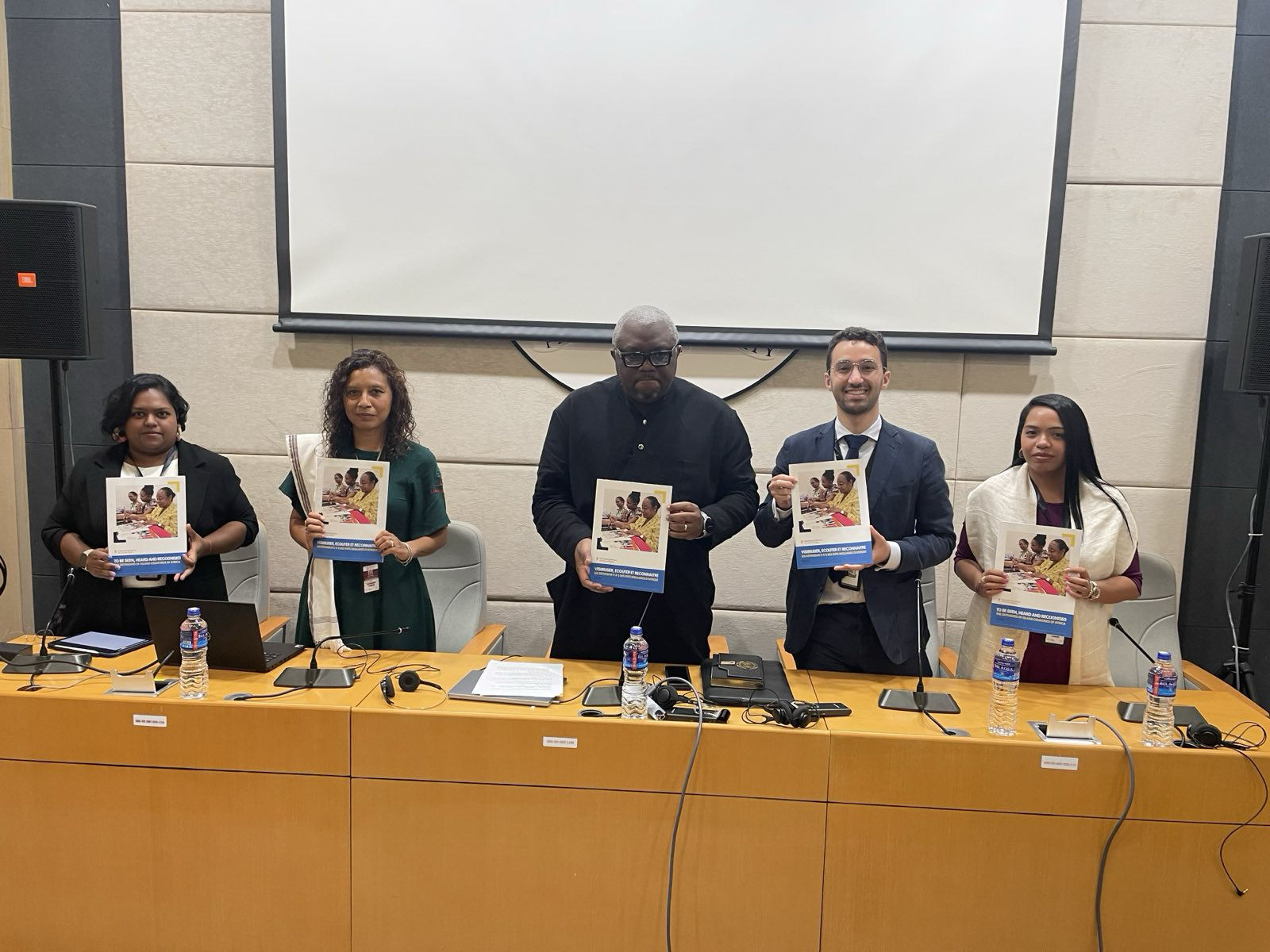
Egypt: Reform unjust vice laws, guarantee open civic space
During Egypt's UPR adoption at HRC59, Nora Noralla delivered a joint statement on behalf of ISHR, Cairo 52 and Middle East Democracy Center. Watch and read the full statement below.
ISHR

On 1 July 2022, during the 50th session of the Human Rights Council, Uganda presented the outcome of its 3rd Universal Periodic Review. Only 54% of the recommendations given for review were accepted by Uganda and none of them were related to the protection of human rights defenders. Uganda can and should do better!
Uganda has accepted 149 recommendations out of the 273 received at its third Universal Periodic Review. During the report of the outcome, Uganda’s Permanent Representative to the UN in Geneva, Marcel Robert Tibaleka, stressed the efforts made by his government to welcome refugees within their borders, as well as the measures taken to better protect people with disabilities. Although those efforts have been commended by both States and civil society organisations, Uganda still needs to fulfill other obligations to comply with the international human rights standards.
The joint statement delivered by ISHR and Women Human Rights Defenders Network Uganda (WHRDN-U) highlighted that the government has shown very little will to change the situation of human rights defenders by noting recommendations on the excessive use of force, the need to combat impunity, freedom of expression and peaceful assembly, and the 16 recommendations concerning civic space and human rights defenders that were offered by all regional groups. The situation is even more difficult for women defenders working to protect the rights of sex workers and the LGBTIQ+ community. Indeed, Uganda accepted none of the recommendations pertaining to the rights of LGBTIQ+ persons. They are still at risk of facing jail sentences that can go up to life. Moreover, Uganda only noted recommendations on the rights to freedom of peaceful assembly and of association.
Therefore, ISHR calls on Uganda to :

During Egypt's UPR adoption at HRC59, Nora Noralla delivered a joint statement on behalf of ISHR, Cairo 52 and Middle East Democracy Center. Watch and read the full statement below.

The 59th session of the UN Human Rights Council (16 June to 9 July 2025) will consider issues including civil society space, climate change, sexual orientation and gender identity, violence and discrimination against women and girls, poverty, peaceful assembly and association, and freedom of expression, among others. It will also present an opportunity to address grave human rights situations including in Afghanistan, Belarus, China, Eritrea, Israel and oPt, Sudan, Syria and Venezuela, among many others. Here’s an overview of some of the key issues on the agenda.

On 4 May 2025, on the sidelines of the 83rd Ordinary Session of the African Commission on Human and Peoples’ Rights (ACHPR) in Banjul, ISHR officially launched its new report on the situation of human rights defenders in the African island states: Cape Verde, Comoros, Madagascar, Mauritius, São Tomé and Príncipe, and Seychelles.